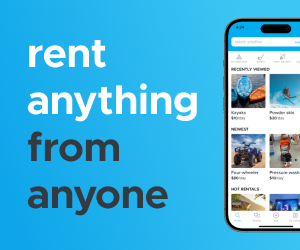Fiddling with Newsfeeds
A little over a week ago, I complained about Twitter on Twitter, annoyed that the company was starting to insert stuff into users’ newsfeeds that users didn’t ask for. While the appearance of ads and other content designed to “increase engagement” was inevitable, it was still disappointing to see on what remains my favorite social platform.
The lament sparked a bite-sized conversation with Beth-Ann Kozlovich, my producer at Hawaii Public Radio. That, in turn, inspired a longer conversation this morning on “The Conversation,” HPR’s daily morning news talk show. We talked about the various ways Twitter, Facebook, and other services mess with their newsfeeds, from injecting ads to using algorithms to promote or demote things based on what users like or don’t like. It was fun to be on the other side of the microphone. You can hear the interview here [MP3], which I’ve also uploaded to SoundCloud:
We only briefly touched on the “filter bubble,” a term coined by Eli Pariser to caution against algorithmic meddling with the information people see based on a machine’s assumption of what they want. I mention Pariser’s perspective often, and it’s a common refrain in tech circles (most recently in discussions over the way Twitter and Facebook surfaced news about protests in Ferguson, Missouri), and prefer Twitter to Facebook specifically because Twitter essentially shows you everything, for better or worse.
But over the years I’ve become less worried about the dangers of the “filter bubble.” And perhaps fittingly, the shift in my opinion wasn’t even clear to me until I shared the HPR interview on Facebook, which sparked a related debate over the effect of Facebook on journalism and the shifting priorities of news organizations. Of course, now I want to liberate that discussion from Facebook, and preserve it out here on the open web.
My friend Paul suggested that things were better in the early days of television, when iconic news anchors like Walter Cronkite loomed large over what Americans considered news. “People formed their own opinions after watching, but at least they were starting with the same set of facts,” he wrote. “Now people tend to start with only the facts they like, and partisan cable channels and algorithmic filtering will only exacerbate that.”
My reply:
That’s exactly where I think this arm-flailing over filter bubbles goes wrong. With Cronkite, you had one gatekeeper deciding what is news. I shudder to think how many stories could be so easily disappeared when a few TV networks and giant newspapers decided everything. The news editor in any town had the power to set the civic agenda, quash a movement, create a saint. How can that be better than thirty stations, or a million web streams? Everyone has a voice, is not guaranteed an audience, and may the most compelling content win.
Yes, I can surround myself with yes men and opinions that support my opinion. But man, that’s what people have done since forming cliques in caves. The fact of the matter is, we have access to more information than has ever been available in human history. Connections can be forged today with a tap on a smartphone that would simply not have been possible one lifetime ago.
I don’t know about you, but I see a lot of diversity even in my “curated” Facebook feed. I don’t “Like” or agree with many things algorithmically served to me. If we were all living in padded cyber cells with nodding smiling faces, why the heck do people also say that Facebook is full of idiots, racists, and communists? We don’t all get along, and damn it, that’s okay with me.
As for the death of “real news”?
I get misty eyed over “All the President’s Men.” I believe journalists have a higher purpose and can change the world for the better. I like to imagine myself one of the dwindling generations of “ink stained wretches” that staggered across a deadline and awoke to the sounds and smells of a printing press. I have plenty of cynicism about what counts as journalism today, what the masses seek out, and so on. I definitely have days when I’m convinced the world is going to hell in a handbasket. But I also think every generation feels that way about the next. Every disruptive technology is the work of the devil, detracting from substance and meaning.
People have, IMHO, always sought distraction over reflection, trivia over hard conversations, spread rumors and hate… only the tools have changed.
Jeff Jarvis, journalism professor at City University in New York, speaks often about how the advent of the cross-country telegraph, and even the first trans-Atlantic cable, were decried as the end of thoughtful reflection and civility. “Now we’ll be inundated with too much information! Why do we need to know every little detail about life so far away, and so quickly?” You could take an op-ed about the telegraph in the 1800s, the radio in the early 1900s, and the television half a century later, swap out the name of the gadget for “Facebook,” and it would read exactly the same.
Yes, the instant availability of infinite voices makes for a lot of noise. And the internet allows for the creation of millions of caves in which extremists can convince themselves their worldview is supreme. I certainly won’t disagree that everything seems more polarized now, and that the mainstream media (and the money it makes) seems driven mostly by sensationalism and conflict. But that succeeds only because people reward it with their attention and clicks.
What I’m excited about is the fact that the mainstream media doesn’t control the message now, and that “real news” and compelling stories can be generated by anyone. There are thousands of petty, shallow celebrity gossip blogs out there. But there are also thousands of other everyday people creating and sharing wonderful stuff. Anyone in the world can see it, if they look for it.







